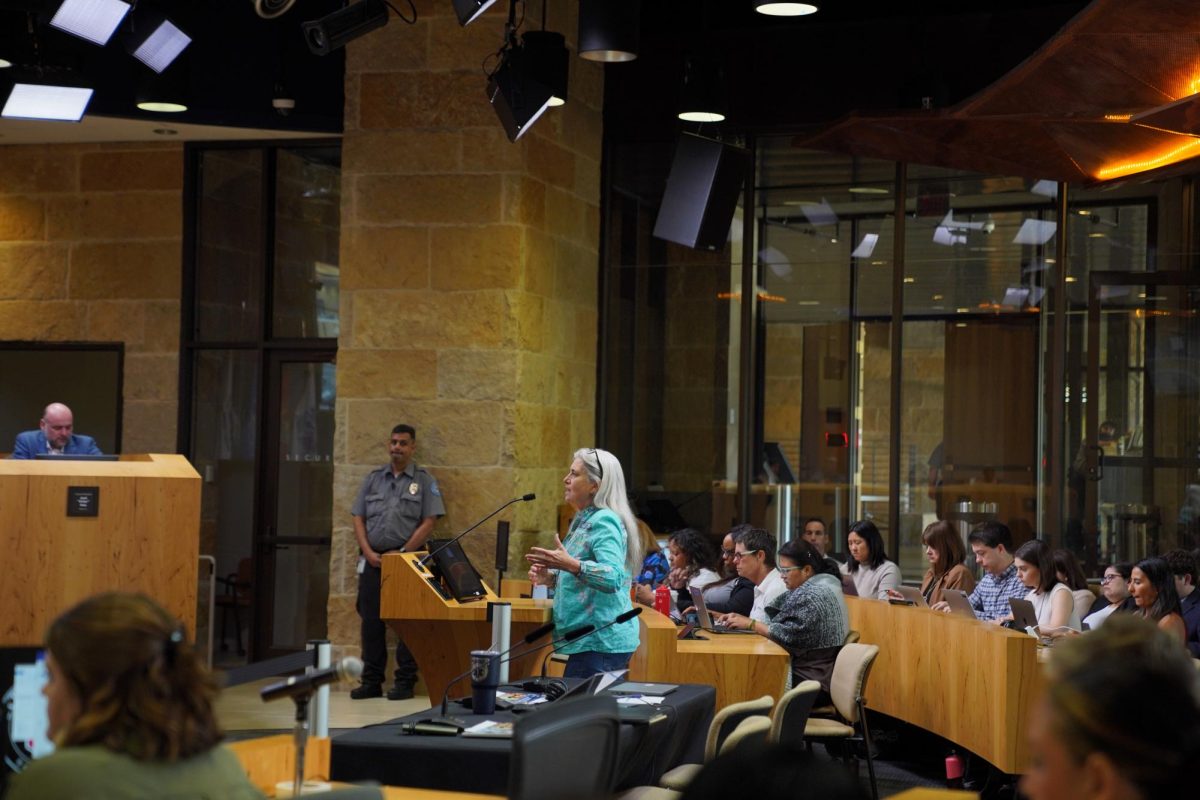Local feminist groups filtered transnational sex trafficking through an economic lens at a Tuesday lecture, providing local, national and global frameworks for the issue.
The Center for Women’s and Gender Studies and the Rapoport Center Research Cluster on Women, Gender, and Human Rights hosted the lecture. The organizations invited Jennifer Suchland, assistant professor of Slavic studies and women’s studies at the Ohio State University, citing her knowledge of the sex trafficking industry.
“The [International Monetary Fund] and World Bank’s policies accommodate, if not facilitate, the sex trade and sex labor,” Suchland said. “Geopolitical and macroeconomic policies are integral to understanding why sex trafficking exists.”
Suchland said historical context when discussing sex trafficking allows people to examine the challenges of stopping the slave trade from blossoming further.
“The current discourse surrounding sex trafficking is a rights-based approach,” Suchland said. “But ‘rights’ is a word like ‘democracy’ with no meaning until it is applied to action in the real world.”
Students debated how to best prevent sex trafficking in the future, whether to pass specific legislation or to circulate more information about the problem.
“Questions of policy are premature,” said associate radio-television-film professor Kathleen Tyner. “There needs to be more discourse surrounding these enormous issues before we can even point to any answers.”
Suchland said Ohio is a hotbed of sex trafficking in the United States and that she succeeded in convincing the legislature to pass a Senate bill in Ohio to increase law enforcement’s ability to crack down on sex trafficking.
“Texas also suffers greatly from sex trafficking and sex slavery,” said Natalie San Luis, a Plan II honors junior and secretary of Texas Feminists. “Where it’s situated, it serves as a gateway from Mexico into the United States.”
Educational psychology graduate student Emily Wade said feminist organizations often find unlikely allies when trying to tackle the issue of sex trafficking.
“These progressive groups are finding odd bedfellows with these conservative organizations like churches that see sex trafficking as a moral issue or even amongst governments that want to increase security at their borders,” Wade said.
San Luis said many Austin-area religious organizations prioritize the issue of sex trafficking.
Globally, Suchland said, violence against women is a transnational problem because of its impact on immigration.
“The sex trafficking issue is synonymous with the immigration issue,” she said.




















